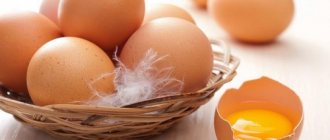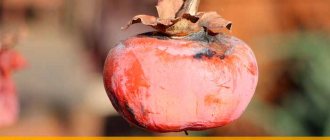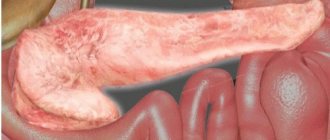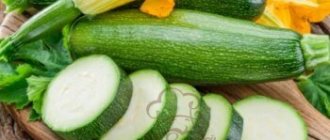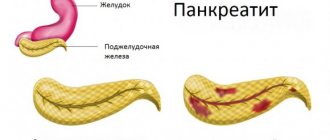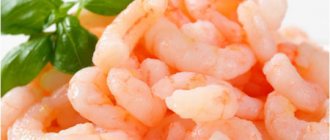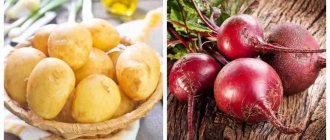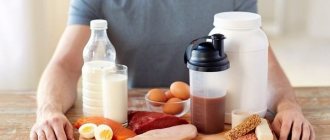Pancreatitis is an inflammatory process that affects the pancreas. The most common form of the disease is chronic. Clinical symptoms are not always pronounced, and the disease is not diagnosed immediately. By the time of diagnosis, the disease has become far advanced. An important part of the pathogenetic mechanism is a violation of the secretion and outflow of pancreatic enzymes into the lumen of the small intestine. Pancreatic juice accumulates in the tissues of the gland, destroying cells and adjacent organs of the digestive tract.
Pancreatitis is treated using developed methods. This is drug therapy, traditional medicine. The principle of treatment is unimportant, the main approaches remain unchanged. The obligatory triad is hunger, cold and peace. Without meeting these conditions, curing chronic pancreatitis becomes extremely difficult.
If the patient's inflammatory process has worsened, the state of rest consists of maintaining bed rest. At the same time, you will have to eliminate physical activity and stress on the digestive system. Acute pancreatitis requires fasting. It is necessary to refuse food.
Therapeutic fasting for pancreatitis is the first condition for a successful and rapid recovery. The duration of fasting is determined by the doctor. Hunger should not last more than three days. The exit from the hunger strike is carried out gradually and in accordance with the rules.
The effect of hunger on the digestive system
The procedure represents a dry fast for pancreatitis, observed for three days. Such therapy can be a lifesaver for the patient. If food does not enter the stomach, in response the organ does not produce pepsin and hydrochloric acid, pancreatic enzymes and bile. With chronic pancreatitis and cholecystitis, the digestive system seems to go into sleep mode. The energy devoted to processing and digesting the bolus of food is ultimately spent on restoring the health of the pancreas and stomach.
As a result of therapeutic fasting for pancreatitis, the affected pancreatic cells are regenerated and functions are restored. In order for fasting to have a healing effect on the body, the procedure will need to be carried out under the strict supervision of a doctor. Based on the results of the examination, the attending physician will determine whether fasting for pancreatitis is indicated for the patient and will give the necessary recommendations on the specifics of following the diet.
About the disease
The pancreas performs an invaluable function in our body. The enzymes produced by this gland are designed to digest food that enters the duodenum. However, due to certain negative factors, the process of enzyme production is disrupted. The outflow of enzymes slows down and a significant part of them accumulates in the gland itself.
The ability of enzymes designed to process food, in this case, aggressively affects the cells of the pancreas. An inflammatory process occurs.
The reasons leading to the occurrence of this kind of pathological changes are:
- Abuse of bad habits (alcohol, smoking for a long period);
- Hereditary predisposition to the disease;
- The pathology may be a consequence of other diseases of the gastrointestinal tract;
- Poor nutrition and abuse of excessively fatty, spicy, spicy foods.
If you do not contact a specialist in a timely manner and lack proper therapy, this vital organ may stop functioning, which is fraught with irreversible consequences. Therefore, at the first symptoms of the disease, namely nausea, pain, you must immediately consult a doctor for qualified medical help.
When treating the disease, doctors resort to drug treatment, the patient is prescribed rest, as well as fasting. Cold, hunger and rest for pancreatitis are the basics of treatment, especially in the acute form of the disease.
Fasting for pancreatitis - general principles
There are a number of rules of fasting that must be observed in the treatment of pancreatitis.
- The amount of food is strictly limited. It is recommended to take small portions 5-6 times during the day.
- The products are thoroughly rubbed through a sieve or blender.
- The diet should not contain fats and carbohydrates, proteins are welcome.
- Fried spicy and fatty foods will have to be excluded from the diet.
As a result, cold and such dietary restrictions will quickly lead to an improvement in the patient's condition. The issue of taking water in acute pancreatitis is decided individually.
How to fast during an acute illness
In acute pancreatitis, rapid death of a separate area of pancreatic tissue is observed. In this case, the patient feels severe, unbearable pain in the abdomen. There is uncontrollable vomiting and nausea. Body temperature may rise significantly.
In such a state, food refusal becomes complete. The duration of the patient's fasting diet is decided by the attending physician.
How to fast
To treat acute pancreatitis, the patient must be placed in a surgical hospital, ensuring complete rest, and cold is applied to the epigastric area. No food is given for 2-3 days. A day later, the doctor examines the patient and allows him to drink a small amount of liquid.
What can a patient do?
During the hunger strike, the patient is allowed to drink mineral water without gases or a weak rosehip decoction. Liquids facilitate the transfer of the body into a gentle mode and restoration of the affected gland structure.
Fasting Results
If therapeutic fasting at home is carried out correctly, you will not need to use medications for treatment. The final decision is made by the attending physician who prescribed the treatment of pancreatitis with fasting.
Fasting for chronic illness
In the chronic form of the disease, the symptoms are not so obvious and are not immediately determined. Destruction of pancreatic tissue certainly occurs, albeit not so intensely.
To avoid exacerbations of the disease, it is recommended to periodically carry out fasting days. You will need to completely abstain from food for the whole day, and you will not be able to drink liquids. During the day you must observe strict bed rest.
It is important to exit the unloading process correctly. First, you will need to drink a small amount of warm water. Gradually switch to vegetable decoctions. If the patient is feeling well, it is allowed to eat a small amount of vegetable soup. After a day, you can return to your normal diet. Remember, it is unacceptable to abuse fasting even for medicinal purposes.
If fasting lasts more than three days, it will not bring health benefits, but can cause harm.
Effectiveness of fasting
The therapeutic effects of fasting for pancreatitis have been substantiated by scientists for quite some time. This therapy technique has been used in medicine for several decades, and according to reviews, it is quite effective. The effectiveness of fasting is clear - the organ affected by the disease needs temporary rest. And hunger provides him with a similar opportunity. Gastric juice stops its secretion, and all the energy previously spent on its production goes to renewing the pancreas.
Numerous patients claim that they were able to achieve complete recovery only by completely abstaining from food for a certain time, and then with the help of a special diet. And I didn’t even have to use medications. This effect of fasting is quite real. Especially when it comes to the initial stage of the disease.
In acute form
During an attack of pancreatitis, the patient feels powerful painful spasms in the hypochondrium area on the left side. He suffers from nausea and vomiting. Often an exacerbation is accompanied by an increase in body temperature.
At such moments, appetite usually decreases. For this reason, refusing food will not be a huge difficulty for the patient. Medicinal fasting during an exacerbation is widely practiced by doctors and is carried out only under their supervision. Before using the technique, the patient is examined for the presence or absence of contraindications.
To block an attack, dry fasting is usually prescribed. That is, the patient refuses food and water entirely. Drinking is allowed only in exceptional cases, and it is more correct to drink alkaline mineral water without gas, which must first be heated to body temperature. Rosehip decoction is also allowed.
These drinks help relieve inflammation in the gland, soothe it and accelerate the regeneration process. If the diet is entirely dry, then the body is supported with the help of droppers.
The duration of fasting will be determined by a specialist. One day will be enough for some people, while others may need a little longer. The deadline is 72 hours. During the period of dry fasting, patients are advised to adhere to bed rest. This will make it possible to reduce energy costs and guarantee complete rest to the body.
The exit from fasting must be carried out smoothly. After going through the required period without eating, you can allow yourself some vegetable broth. Within an hour you can eat a bowl of soup. You need to return to your usual menu the next day.
The correct way out of dry fasting is no less important, as is the competent implementation of the process of abstaining from eating.
How to eat after fasting
In order for the results of fasting to be reliably consolidated and the state of health to be restored faster, it is necessary to adhere to the established rules. Exit from fasting must be gradual and meet the requirements.
- You need to eat fractionally, in small portions. During the day, the number of meals is 5–8.
- The weight of food per meal should not exceed 200 grams. How much liquid to drink is decided individually for the patient.
- Products are only boiled or stewed.
- Prepared food must be thoroughly rubbed or blended in a blender.
- Dishes filled with carbohydrates and animal fats are completely excluded from the diet.
- The diet should contain a large amount of lean meat and cottage cheese. Such products are rich in protein and help restore the structure of the pancreas.
- It is not recommended to eat food that is hot or too cold. Food should remain comfortably warm or at room temperature.
- Spicy foods and alcoholic drinks for pancreatitis are strictly prohibited.
What can the patient do?
It is not difficult to cure pancreatitis with fasting, but maintaining the condition is then more difficult.
What is a patient allowed to eat:
- Vegetable puree soup.
- Low-fat fish.
- Lean meat (can be baked, stewed, steamed).
- Turkey loin (stew, bake).
- Porridges cooked in water (especially buckwheat, oatmeal, wheat).
- Herbal teas.
- Not a strong rosehip decoction.
- Dairy products with low fat content.
Advice! You need to start your meal with a glass of warm water, then you can eat light vegetable soups, pureed vegetables, stewed vegetables. Fish and meat should be steamed. It is better to stick to separate meals. Eat often, in small portions, completely avoid alcoholic beverages and spicy seasonings.
Expert opinions and patient reviews
Regarding therapeutic fasting, the opinion of doctors remains unanimous. In the acute form of pancreatitis, indications for therapeutic fasting are correct. The process must be carried out under the strictest control. A number of contraindications to fasting have been voiced:
- Arterial hypotension.
- Iron-deficiency anemia.
- Reduced blood sugar levels.
- Diabetes mellitus of any type.
- Vitamin deficiencies.
Uncontrolled fasting in the presence of these diseases leads to irreversible consequences. On the contrary, therapeutic fasting is recommended for those patients who do not respond well to standard drug therapy.
According to patient reviews, within a day after the fasting day there is a decrease in pain and nausea. With this approach, recovery and restoration of general well-being proceeds much faster.
When carrying out the therapeutic fasting procedure, it is necessary to strictly observe bed rest. The subtleties of the procedure completely depend on the clinical characteristics of the disease and concomitant pathology. It is not forbidden to apply an ice pack to the affected area. Cold should only be applied for a short period of time.
Speaking about the nature of therapeutic fasting, it is necessary to take into account the patient’s daily diet. Dry fasting is strictly not recommended more than once a week. Fasting days can be done a little more often. It is recommended to limit yourself to the least calorie foods. Fasting for therapeutic purposes must be systematic in order to have a beneficial effect on the pancreas and the body.
